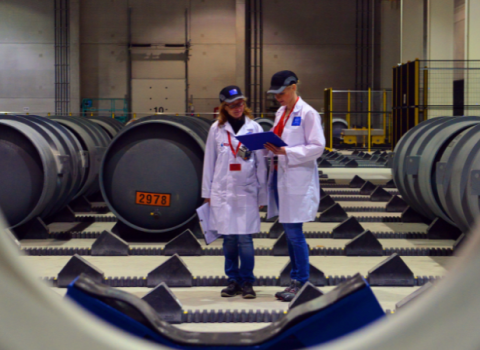Licensing opportunity
Researchers at ETH Zurich have developed a method for thermally fragmenting rock in the excavation of vertical and directional boreholes in rock formations. The technique, based generating highly exothermic reactions in the presence of a water-based drilling fluid, aims to combine the advantages of rotary and thermal spallation drilling techniques.
Conventional rotary drilling processes still represent the major cost in the construction of geothermal power plants. Lines have to be drilled to depths of several kilometres to access geothermal energy reservoirs. The high costs mainly arise due to the fast wearing out and replacement of drill bits when hard polycrystalline rock is drilled at great depth. As a result, considerable expensive down time is inevitable when using conventional rotary drilling methods.
The ETH contact-free rock fragmentation technology is expected to overcome this.
The drilling concept is environmentally friendly, using a hydrothermal flame jet in the aqueous environment of water-based drilling fluid. This is exposed to the rock surface, heating it up rapidly and causing high thermal stresses in the upper rock layer due to thermal expansion.
Based on the stress, thermally induced fragmentation occurs and disk like rock fragments are formed in the hot rock spallation zone. These rock cuttings are transported upwards in an annular stream of drilling fluid in between the drill string and borehole wall.
Overall, the technique promises less expensive downtimes during drilling; improved transport of rock cuttings; a high penetration rate in hard rock formations; and controllable heat flux to the rock.
Apart from drilling holes to a great depth to access geothermal energy, the method is suitable for use in on and offshore oil extraction, and could be used to improve oil recovery via an in-situ combustion process.





 A unique international forum for public research organisations and companies to connect their external engagement with strategic interests around their R&D system.
A unique international forum for public research organisations and companies to connect their external engagement with strategic interests around their R&D system.